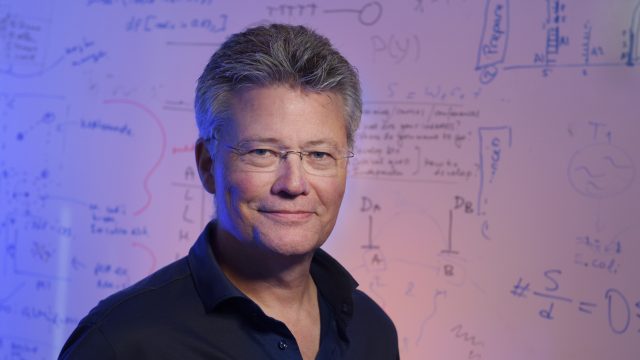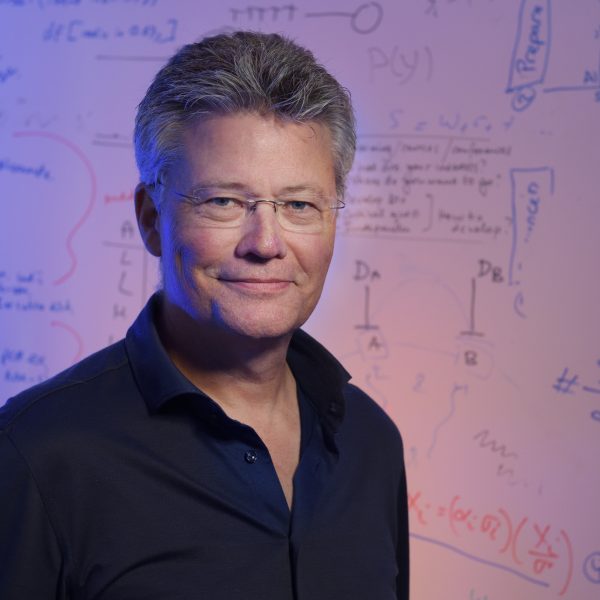
Our research aims to understand how cancer cells respond to treatment, using computer models and statistical analysis. We focus on three key topics:
- Predicting Drug Effectiveness: We are developing better ways to predict how well cancer cells will respond to drugs, individually and in combination, by analysing large datasets and identifying patterns to predict outcomes. We’ve recently improved our methods for measuring drug combinations and are refining our techniques to account for factors that skew our results.
- Modelling Cell Decisions: Cancer cells make critical decisions affecting growth and treatment. We are building computer models that simulate these decisions within individual cells to understand how different cell types respond and what influences their behaviour. We’ve developed a new tool for analysing these responses in single cells, and are using it to investigate how cells react to low-dose treatments.
Improving Immunotherapy: We're developing new computer methods to understand how immune cells interact with cancer cells within tumours to improve immunotherapy effectiveness. Our recent work analysing cell arrangement within tumours has revealed important insights into immune response, particularly in bladder and head and neck cancers.
This work combines advanced modelling and technology to improve cancer treatment understanding and lead to more effective therapies.
About Lodewyk Wessels

Lodewyk Wessels
My Research
Lodewyk Wessels is the head of the Computational Cancer Biology group at the Netherlands Cancer Institute in Amsterdam, The Netherlands. Dr Wessels received his M.Sc. and Ph.D. both from the Department of Electronic and Computer Engineering, University of Pretoria, South Africa. From 1993 to 1997 he was a member of the Center for Spoken Language Understanding at the Oregon Graduate School of Science and Technology, initially as graduate student and later as post-doctoral fellow. In 1997 he joined the Faculty of Electrical Engineering, Mathematics and Computer Science at the Delft University of Technology and was appointed assistant professor in 2002. In 2006 he became a faculty member at the Netherlands Cancer Institute in Amsterdam, The Netherlands. He was appointed chair of Computational Cancer Biology at the Technical University in Delft in April 2012 and heads the Cancer Systems Biology Center at the Netherlands Cancer Institute.
Important contributions to computational cancer biology include the development of novel algorithms for the identification of 1) driver genes in insertional mutagenesis screens (CIMPL, de Ridder et al. 2006); 2) driver genes from copy number profiles (ADMIRE (van Dyk et al, 2013) and RUBIC (van Dykl et al 2016)); interactions between aberrations in tumors (DISCOVER, Canisius et al 2016) and the identification of logic combinations of aberrations that explain drug response (LOBICO, Knijnenburg et al 2016). The Wessels group also collaborated with experimental groups on several landmark papers including 1) the mapping of the genetic landscape of mouse models of lymphomagenesis (Uren et al 2008); mapping chromatin position effects (Akhtar et al 2013) and charting the landscape of pahamacogenomic interactions in cancer (Iorio et al 2016).
Awards
- 2010: Cancer Systems Biology Center, NWO
Key Publications
Akhtar, W., de Jong, J., Pindyurin, A. V., Pagie, L., Meuleman, W., de Ridder, J., ... & van Steensel, B. (2013). Chromatin position effects assayed by thousands of reporters integrated in parallel. Cell, 154(4), 914-927.
de Jong, J., Akhtar, W., Badhai, J., Rust, A. G., Rad, R., Hilkens, J., ... & de Ridder, J. (2014). Chromatin landscapes of retroviral and transposon integration profiles. PLoS genetics, 10(4), e1004250.
Farazi, T. A., ten Hoeve, J. J., Brown, M., Mihailovic, A., Horlings, H. M., van de Vijver, M. J., ... & Wessels, L. F. (2014). Identification of distinct miRNA target regulation between breast cancer molecular subtypes using AGO2-PAR-CLIP and patient datasets. Genome biology, 15(1), R9.
Iorio, F., Knijnenburg, T. A., Vis, D. J., Bignell, G. R., Menden, M. P., Schubert, M., ... & Cokelaer, T. (2016). A landscape of pharmacogenomic interactions in cancer. Cell, 166(3), 740-754.
Van Dyk, E., Hoogstraat, M., Ten Hoeve, J., Reinders, M. J., & Wessels, L. F. (2016). RUBIC identifies driver genes by detecting recurrent DNA copy number breaks. Nature communications, 7, 12159.
Members
| Lodewyk Wessels Division Head, Division Molecular Carcinogenesis | Aaron Lin PhD student | Alberto Gil Jimenez PhD Student |
| Alex van Vliet PhD student | Bram Thijssen | Daniel Vis Senior Postdoc |
| Duco Gaillard PhD student | Ewald van Dyk PostDoc | Guizela Prince PostDoc |
| Hamza Ali PhD student | Kat Moore Bioinformatician | Kathy Jastrzebski Scientific Staff Member |
| Maksim Chelushkin PhD student | Nadine van de Brug PhD student | Niek Brouwer PhD student |
| Olga Isaeva PhD Student | Paolo Odello PhD student | Pedro Batista Tan PhD student |
| Sander Canisius Associate Staff Scientist | Silvana Roos Technician | Steven Wijnen MSC |
| Tim Stohn PhD student | Vanessa Botha PhD student |